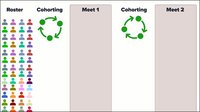Impero Software has partnered with EPIK Deliberate Digital, the Digital Citizenship Institute and Educate Empower Kids on a new white paper, “Prevention Science: A Framework for Positive Digital Citizenship” launching this week during the 2017 Digital Citizenship Summit (DigCitSummit) in Provo, Utah.
The white paper, which targets parents and professionals, takes an in-depth look at how the principles of prevention science can be used to promote positive digital citizenship among young people. It can be downloaded here.
“As technology becomes more prevalent in schools and homes, the lines between the digital world and the real world become increasingly blurred,” said Sam Pemberton, CEO of Impero Software. “This white paper explores the proactive measures adults can take in promoting positive digital citizenship among youth. We hope it will inform the conversation and will encourage adults to work side-by-side with young people to help them understand the dangers and leverage the possibilities of living in a digitally-driven world.”
The white paper explores Positive Digital Citizenship, a growing movement which encourages adults to promote good online behavior by working directly with children on character development, integrity, empathy and prosocial action. It also explains the principles and research behind prevention science, and how these principles can inform conversations, curricula, and collaborations around digital citizenship, with practical advice for teachers, parents and communities.
The white paper issues calls-to-action for adults, including taking a community-wide approach to promoting positive digital citizenship and asking experts in the public health, prevention science, digital citizenship and media literacy fields to work together on research, programming, policies, and initiatives that can both continue to find ways to reduce digital risks and help children become deliberate digital citizens.
According to the whitepaper, “Just as good citizenship in the face-to-face world is more than just obeying laws, locking doors, staying off the streets and not doing drugs, good Digital Citizenship includes being informed, involved, and engaged in efforts to improve communities and to help and serve others....[Digital Citizenship involves] reducing risks and proactively fostering positive opportunities to use technology for good."
Impero, along with EPIK Deliberate Digital, the Digital Citizenship Institute and Educate Empower Kids, will officially launch the white paper at the DigCitSummit on November 2nd and 3rd, 2017. The intent of DigCitSummit is to bring Positive Digital Citizenship squarely into conversations and culture around kids and technology. The goal is to help improve the culture in the United States and to invite developing nations around the world to avoid a fear-based, reactive culture when it comes to kids and technology. Safety and other protection-based principles are, and will always be, important, and fostering positives is essential to helping children prepare to be deliberate digital citizens and influencers in their personal, local, global, and digital spheres. Impero will join the other authors of the white paper on Friday, Nov. 3, 2017 at the TribeHouse Event Center for a panel discussion designed to ‘get beneath the skin’ of the ideas within this white paper.
The white paper is part of Impero’s ongoing work to support schools in keeping students safe online and to promote good digital citizenship. The company released a white paper at the 2016 Digital Citizenship Summit co-authored with the Digital Citizenship Institute, which offered insight and best practices when teaching digital citizenship in schools. Earlier this year it released an Online Safety Handbook which provides resources and best practices for schools that use Impero Education Pro.
Impero Software partners with schools to provide online monitoring software that can alert instructors or administrators if it detects students typing or searching for certain keywords related to sexting, cyberbullying, radicalization, self-harm and more. It also provides anonymous reporting features and other classroom management features to help schools and IT departments manage multiple devices as the use of technology in the classroom continues to rise.











